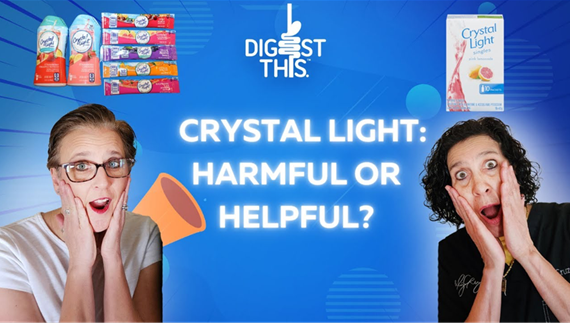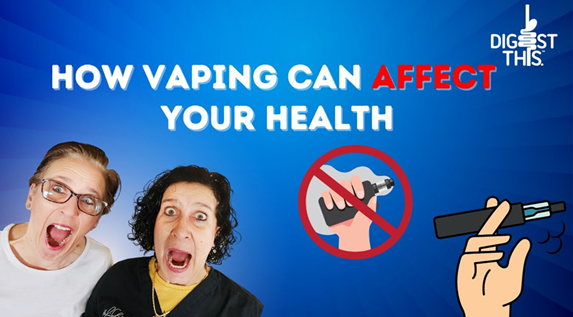Crystal Light seems like the perfect solution for people who struggle to drink enough water. This colorful powder promises to transform plain H2O into a flavorful, low-calorie beverage that makes hydration more enjoyable. But beneath the appealing marketing lies a concerning truth about what you're actually putting into your body.
Many health-conscious individuals reach for Crystal Light thinking they're making a smart choice. After all, it's marketed as a healthier alternative to sugary drinks, and it helps people meet their daily water intake goals. However, when you examine the ingredient list closely, you'll discover that this popular drink mix contains nothing but artificial chemicals, preservatives, and synthetic additives.
Understanding what's really in Crystal Light—and how these ingredients affect your health—can help you make better decisions about flavoring your water and staying properly hydrated.
What's Actually Inside Crystal Light
When you flip over a Crystal Light packet and read the ingredients, you won't find a single natural component. Instead, you'll see a list of chemical names that are difficult to pronounce, artificial sweeteners, synthetic dyes, and various preservatives designed to extend shelf life.
The primary sweeteners used are either sucralose or aspartame, depending on which variety you choose. Sucralose is actually sweeter than traditional artificial sweeteners like aspartame and saccharin, but it's created through a chemical process that involves chlorination. Essentially, chlorine is used to modify sugar molecules, creating a compound that your body doesn't recognize as food.
Interestingly, in Europe, sucralose is referred to by a number—E955—rather than a name, which reflects how European regulatory agencies classify these artificial additives. European countries have generally been more restrictive about allowing artificial colors, flavors, and preservatives in their food supply compared to the United States.
The remaining ingredients in Crystal Light consist entirely of artificial colors, flavors, preservatives, and anti-caking agents. There are no vitamins, minerals, or beneficial nutrients of any kind. You're essentially drinking a cocktail of laboratory-created chemicals dissolved in water.
The Health Risks You Need to Know
The side effects associated with regular Crystal Light consumption should concern anyone who uses this product daily. The most commonly reported issues include gastrointestinal problems, which is particularly troubling for people already dealing with digestive issues.
Users have also reported experiencing migraines, dizziness, and unexpected blood sugar increases despite the product being marketed as sugar-free. Most alarming are reports of seizures in people who consume large quantities of Crystal Light regularly.
These symptoms occur because your body doesn't know how to process these artificial chemicals. When you heat sucralose above 120 degrees Fahrenheit—which can happen during digestion or if you use it in cooking—the compound begins to decompose and become dechlorinated. This breakdown process creates new chemical compounds that your body must somehow eliminate.
The artificial colors and preservatives add another layer of concern. Many of these additives have been linked to hyperactivity in children and various allergic reactions in sensitive individuals.
Why Water Flavoring Defeats the Purpose
The irony of using Crystal Light is that people add it to water specifically to improve their health through better hydration. However, the chemicals in this product actually work against your body's natural processes and can create new health problems.
Pure water serves essential functions in your body—it helps transport nutrients, flush out toxins, regulate body temperature, and support every cellular function. When you add artificial chemicals to water, you're asking your body to process and eliminate these foreign substances, which actually requires additional water and energy.
Many people use Crystal Light during medical preparations, such as colonoscopy prep, thinking it will make the process more tolerable. However, this adds unnecessary stress to your digestive system at a time when your body is already working hard to cleanse itself.
The goal of drinking water is hydration and detoxification. Adding synthetic chemicals undermines both purposes and can leave you feeling worse than if you had simply drunk plain water.
Natural Alternatives That Actually Taste Good

Fortunately, you don't have to choose between bland water and chemical-laden drink mixes. Fresh, natural ingredients can transform your water into something delicious while actually providing health benefits.
Fresh lemon or lime juice is the simplest and most effective water enhancer. These citrus fruits naturally increase the alkalinity of water, which can help balance your body's pH levels. They also provide vitamin C and natural enzymes that support digestion and immune function.
For variety, try adding fresh cucumber slices, mint leaves, or berries to your water. These ingredients infuse natural flavors while adding beneficial antioxidants and nutrients. Frozen fruit works well too and has the added benefit of keeping your water cold.
Herbal teas offer another excellent option. Brew a strong batch of peppermint, chamomile, or fruity herbal teas, then chill and drink throughout the day. You get natural flavors plus the therapeutic benefits of the herbs.
Green smoothies made with spinach, celery, cucumber, and a small amount of fruit create a nutrient-dense beverage that hydrates while providing vitamins, minerals, and fiber. These drinks actually nourish your body instead of burdening it with chemicals.
Making Smarter Hydration Choices

The key to successful hydration isn't finding ways to mask water's taste—it's developing an appreciation for what pure water does for your body and finding natural ways to enhance it when desired.
Start by examining why you feel the need to flavor your water. Often, this stems from being accustomed to overly sweet, artificially flavored beverages. As you reduce these products, your taste buds will adjust, and you'll begin to appreciate subtler, more natural flavors.
If you're using Crystal Light because you struggle to drink enough water, focus on the quality of your water first. Filtered water often tastes significantly better than tap water and may eliminate your desire for artificial flavoring altogether.
Remember that beverages like herbal teas, fresh vegetable juices, and water infused with natural ingredients all count toward your daily fluid intake while providing actual nutritional benefits.
Take Control of What You Consume
The responsibility for protecting your health ultimately falls on you. The FDA's approval of artificial sweeteners and additives doesn't guarantee they're safe for long-term consumption—it simply means they haven't been proven definitively harmful in short-term studies.
Make it a habit to read ingredient lists on everything you consume. If you can't pronounce an ingredient or don't know what it is, research it before putting it in your body. This simple practice will dramatically improve the quality of your diet and reduce your exposure to unnecessary chemicals.
Your body deserves real nutrition, not synthetic substitutes. By choosing natural alternatives to products like Crystal Light, you're investing in your long-term health while still enjoying flavorful, satisfying beverages.
Start today by replacing your Crystal Light with fresh lemon water or naturally infused water. Your digestive system—and your overall health—will thank you for making this simple but powerful change.
👉 Book a consultation with our team to get personalized support
👉 Or check out the other amazing Dr. Liz Cruz products designed to help you live cleaner, feel better, and stay informed





